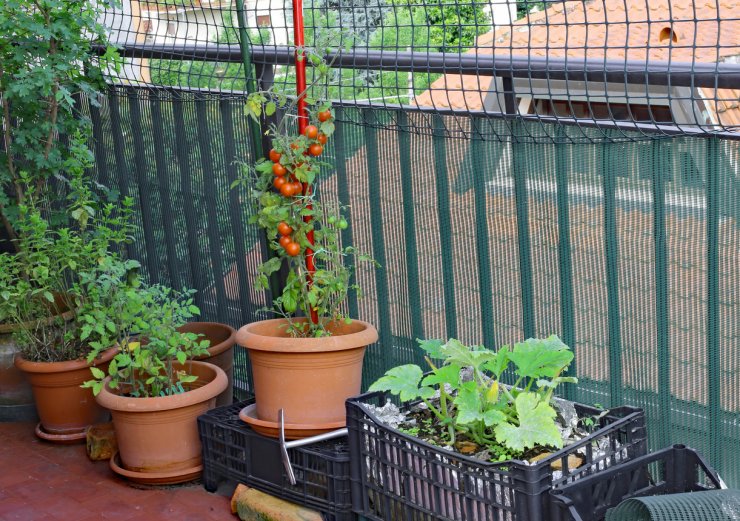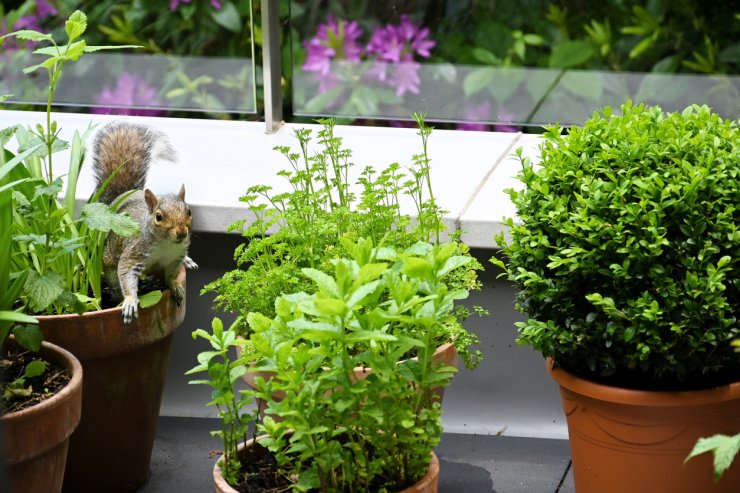
If you’ve read much about gardening, you know those furry, fuzzy critters that live nearby can invite themselves into your garden for a dinner date with your tomatoes. The local skunks will eat your strawberries, and rabbits will take all your broccoli. You would think that your balcony vegetables would be safe, since they’re not on the ground.
They could be. It’s hard to imagine a groundhog climbing up seven stories to snag those fresh peas on your balcony. Then again, maybe you have the best peas ever?
Not every balcony is safe, however. There are plenty of balconies that are easy to reach from a nearby tree or an easy climb up the support beams.
Discover 7 top tips for growing, harvesting, and enjoying tomatoes from your home garden—when you access the FREE guide The Best Way to Grow Tomatoes, right now!

Keeping your balcony vegetables thriving in a world full of cute and fuzzy garden raiders
It is true that on your balcony, vegetables won’t be as accessible or as desirable to the local wildlife. They’re looking for an easy meal, not a major heist. That’s no guarantee they won’t come for your plants if there aren’t many options, or if your balcony is easy to get to.
Raccoons and squirrels are both great climbers, and they enjoy young vegetable plants. Some birds, too, will eat vegetables. So to keep your balcony vegetables safe from these critters, the first thing to do is assess the situation. Is there an easy way for a raccoon to climb up to your balcony? Is there a nearby tree a squirrel could jump from?
Assuming there is, your best bet is to eliminate the access, if you can.
- Move any ladders, piles of wood, or other objects these animals could use to get close to your balcony vegetables. If they’re climbing onto your balcony from a tree, you may be able to cut the tree back.
- If that’s not an option, you can try using a repellant and spraying the area around your balcony. Some people suggest putting down a double layer of plastic sheets, since raccoons don’t like how it feels on their paws.
- Motion-sensor repellants can work on some critters, so it’s worth a try. Or there’s always the ever-popular vinegar. Spray down your balcony with vinegar, and hopefully, that will keep most critters away. As a bonus, you can use the leftover vinegar to clean your windows, remove water stains from your wood furniture, and clean your drains.
- As a last resort, if none of that is working, bring your balcony vegetables indoors at night. That’s not ideal, but it could allow you to minimize the damage and provide the critters with an incentive to find other food sources.
Have you had problems with pests eating your balcony garden? How did you solve the issue?




